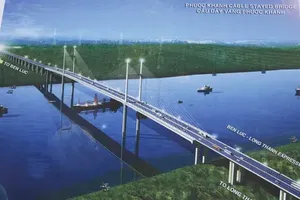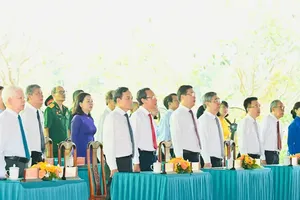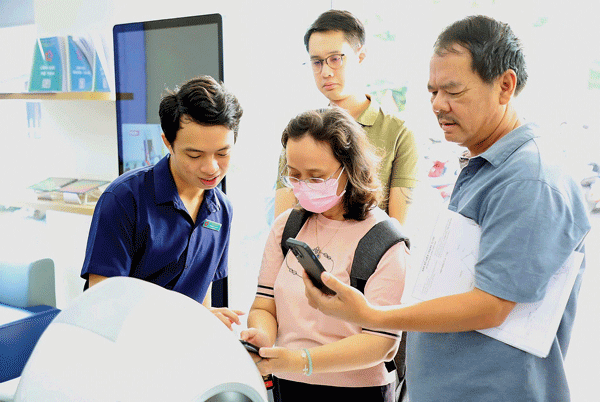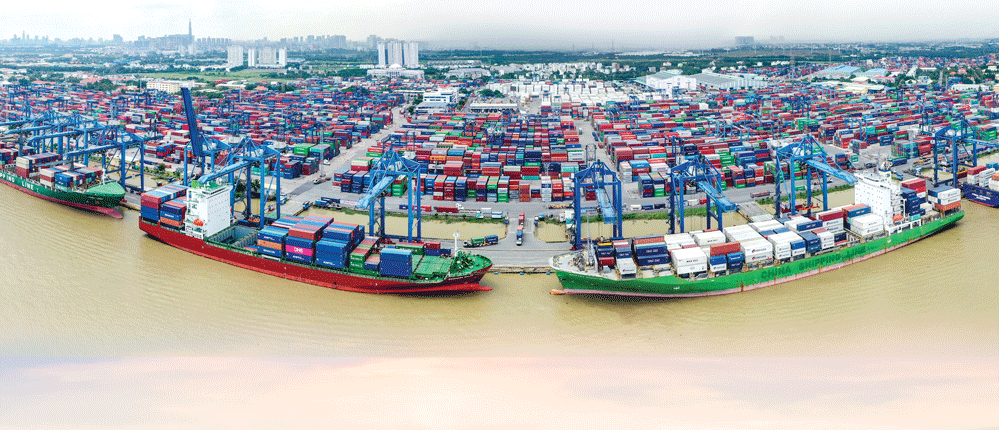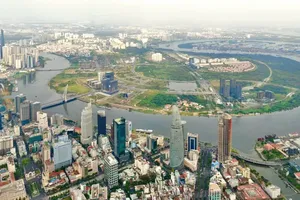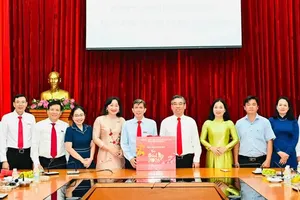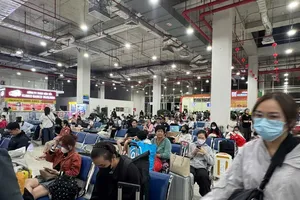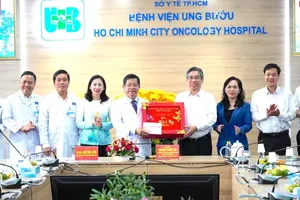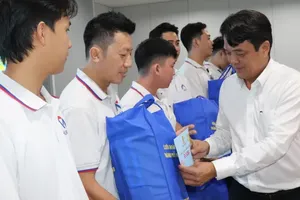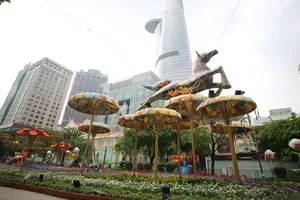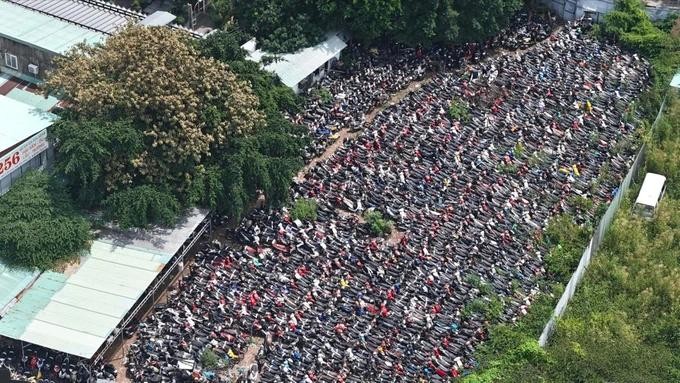
It is indisputable that the authorities have taken significant strides to enhance legal regulations, streamlining procedures and processes, and fostering a favorable environment for both individuals and businesses. These efforts have played a pivotal role in driving socio-economic progress within the nation.
Nevertheless, in practice, numerous sectors and areas continue to encounter deficiencies in legal regulations, which obstruct effective implementation, result in resource loss and waste, and lead to missed opportunities for development.
A mere 10 words in a circular have resulted in a loss of VND350 billion over three years. This situation has arisen within the Ministry of Transport. On October 17, the Government Inspectorate publicly released its findings regarding the accountability of officials, civil servants, and public employees in managing administrative procedures and delivering public services to citizens and businesses at the Ministry of Transport.
The report concluded that Circular 01/2021, issued on January 27, 2021, which amends and supplements certain articles related to the training, testing, and issuance of road motor vehicle driving licenses, imposes additional administrative procedures that are not legally justified.
The circular issued by the Ministry of Transport and the Ministry of Health regarding the health examination procedures for drivers mandates a ‘test for alcohol concentration in blood or breath’. This requirement has resulted in increased costs for individuals seeking to obtain or renew their driver's licenses.
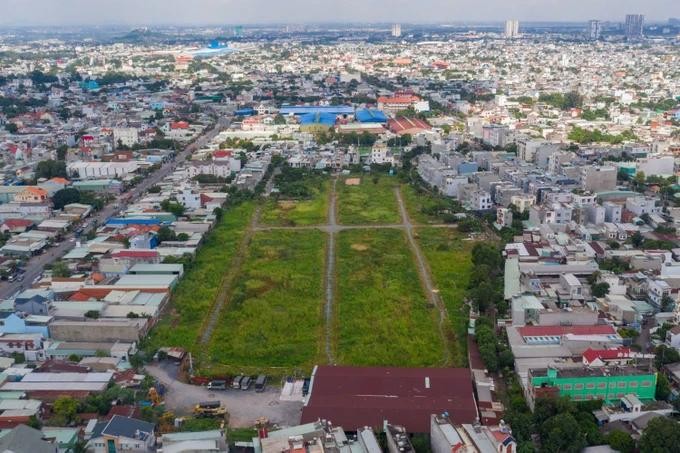
Data from the Vietnam Road Administration indicates that nearly 9,978,000 driver's licenses of various types were issued across the transportation sector from January 1, 2021 to January 1, 2023. The Government Inspectorate has estimated that individuals incurred approximately VND350 billion (with each unit costing VND35,050 per test) on what it deemed to be unnecessary alcohol concentration tests during their health examinations for driver's license acquisition.
The conclusion outlined that, the Ministry of Transport effectively fulfilled the necessary criteria for managing administrative procedures from 2021 to 2023; thereby delivering public services efficiently and creating a convenient environment for both individuals and businesses.
However, the Ministry was slow to issue a plan to reduce and simplify administrative procedures as required by the Government; and did not fully implement the plan to simplify regulations related to business activities for 3 out of 237 administrative procedures, which is not in accordance with the Prime Minister's decision. The Ministry also issued circulars that were not consistent and synchronous between articles and clauses, causing difficulties for people and businesses.
The Ministry has also released circulars that lack consistency and synchronization among the articles and clauses, leading to challenges for individuals and businesses. Furthermore, the Circular 01/2021 mandates that the application process for a class A1 and A4 motorcycle driving license includes extra administrative procedures, which contravenes the prohibited actions outlined in the Law on Promulgation of Legal Documents.
In addition, cumbersome procedures not only impede enforcement but also result in waste for individuals and society. To illustrate, numerous warehouses in Ho Chi Minh City are overflowing with evidence and vehicles that have violated traffic safety regulations. Tens of thousands of motorcycles and cars are exposed to the sun and rains for days, leading to fading and gradual deterioration. The process of handling these vehicles is entangled in bureaucratic red tape, consuming substantial time.
During campaign launched citywide to handle traffic violations, Ho Chi Minh City's traffic police temporarily detain around 500 vehicles daily for violations. In 2023, they impounded over 150,000 motorbikes and cars for traffic infractions.
This scenario frequently occurs in various provinces and cities. Following the designated temporary detention period, if the vehicle owner is informed yet fails to retrieve the vehicle, it will be subject to confiscation and subsequent auction.
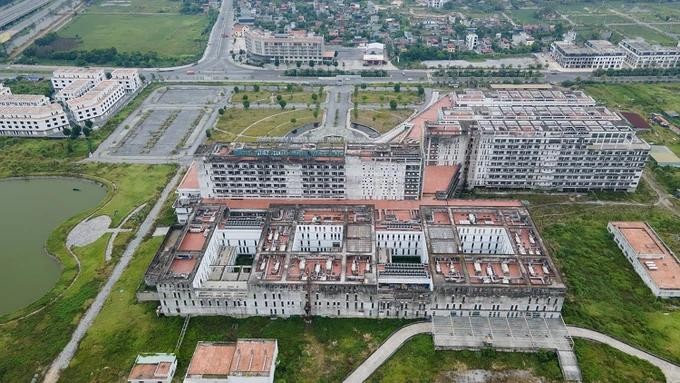
However, the process of making a decision regarding confiscation and auction involves numerous steps and stages, including verification and comparison of information, notification, confiscation, appraisal, and auctioning, which can extend over a lengthy duration, potentially lasting up to two years.
Nationwide, there are numerous legal issues that impede effective planning and land use, hinder financial and budgetary mechanisms, impair policies to attract investment and businesses, and undermine infrastructure, transportation, agricultural development, and rural progress.
Worse, tangible waste often begets intangible waste, such as lost opportunities and eroded trust, which are challenging to quantify.
In the investment sector, many foreign enterprises have complained about the complexity of applying for permits to recruit foreign experts. A survey by the European Chamber of Commerce in Vietnam (EuroCham) published in October 2024 showed that applying for permits for foreign workers is one of the three biggest obstacles to the operations of European enterprises.
Colin Blackwell, Head of the Human Resources Group of the Vietnam Business Forum (VBF) Alliance, complained that the current regulation requires workers to apply for a work permit at their intended place of work and update each location when workers are assigned to work in different localities. He argued that this regulation is often impractical and suggested that it should be revised to broaden the geographical scope of work permits, streamline the application review process, and prioritize applications for high-impact projects, those involving significant investments, or projects with strong compliance histories.
The 2023 PCI (Provincial Competitiveness Index) and PGI (Provincial Green Index) report of the Vietnam Federation of Commerce and Industry (VCCI - through a survey of 9,127 domestic private enterprises and 1,549 foreign-invested enterprises) also clearly stated that in 2023, 20.4percent of enterprises still had to spend more than 10percent of their time to learn and implement legal regulations.
According to feedback from enterprises, obstacles in accessing land are on the rise. In fact, nearly 73 percent of surveyed enterprises reported having to delay or cancel their 2023 business plans due to difficulties navigating the administrative procedures for obtaining land.
The 13th National Party Congress report indicated that efforts to prevent and combat corruption and waste had not resulted in any clear improvements.
Waste is still serious, but detection and handling are still limited, causing frustration in the public.
In the article ‘Combating Waste’ published on October 13, 2024, General Secretary and President To Lam highlighted several prevalent forms of waste that are currently intensifying.
The inefficiencies stem from the formulation and refinement of regulations that fail to align with the practical needs of the innovation process. This misalignment results in challenges that obstruct implementation and lead to the misallocation of resources. Additionally, the cumbersome nature of administrative procedures and the lack of convenience in online public services contribute to the squandering of time and effort for both enterprises and individuals. Furthermore, the potential for development at the local and national levels is diminished by the ineffective operation of certain state apparatuses, compounded by the presence of corrupt, incompetent, and evasive officials who evade responsibility and exhibit low quality and productivity.
The waste of natural resources and public assets arises from ineffective management and usage, including the disbursement of public investment capital, the equitization and divestment of state-owned enterprises, and the restructuring and handling of state-owned properties and lands, especially in projects involving extensive land and water resources. The implementation of national programs and targets, and credit packages to support social security development is mostly sluggish. Wastefulness in production, business, and consumption activities takes many forms.



